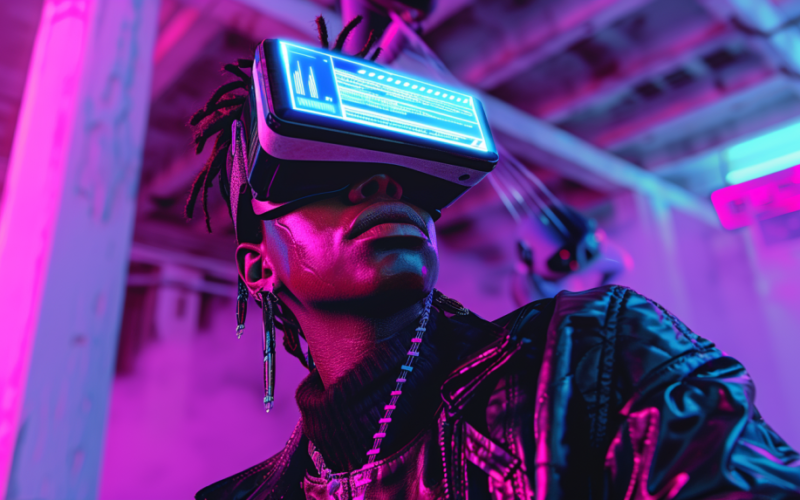Join our daily and weekly newsletters for the latest updates and exclusive content on industry-leading AI coverage. Learn More
Midjourney, the popular AI image generation service and company, today formally confirmed what had been rumored and suspected for a while: it’s getting into hardware devices.
The company announced the move in a post from its official account on X, stating, “We’re officially getting into hardware. If you’re interested in joining the new team in San Francisco please email us at hardware@midjourney.com.”
Disclaimer: VentureBeat uses Midjourney and other AI image generators to create article illustrations and other collateral.
Scarce information and many cryptic clues about Midjourney’s hardware ambitions
Midjourney’s official X account and that of its founder and leader David Holz, a former co-founder and CTO of the gestural hand-tracking startup Leap Motion, offered a few more clues about what Midjourney has in mind for its hardware team.
The company appeared to confirm earlier observations that it has hired Ahmad Abbas, the former Hardware Engineering Manager of Apple’s Vision Pro “spatial computing” headset and a former colleague of Holz’s at Leap Motion, to lead its hardware division. Abbas has the “Head of Hardware” at Midjourney listed on his LinkedIn with a start date of Dec. 2023.

Abbas himself announced his decision to join Midjourney in a LinkedIn post 7 months ago.
The Midjourney company account confirmed the device would “not” be “a pendant,” which has been the form of some early AI devices so far. That makes sense, given that Midjourney’s current product is centered on using diffusion-based AI models to generate still imagery on the fly, and pendants typically don’t ship with screens or large enough interfaces to see imagery in much detail.
In another cryptic response on X, it alluded to a device you go “inside of” rather than being a wearable.
The company told one TechCrunch writer (and former VentureBeat journalist) that it has “multiple efforts in flight.”
Holz posted a reply stating that remote hires would “probably” not be supported.
Another X user dug up an old X post from Holz indicating that he was interested in pursuing an “orb” as a form factor, referencing the meme about pondering orbs.
Whatever Midjourney fields, it is likely to be something unlike anything we’ve seen in the recent hardware space, as the official company account noted there were “definitely opportunities for new form factors.”
Facing increasing competition in the AI model space
The news comes on the heels of Midjourney facing steeper competition than ever from new photorealistic AI image generation models and services, such as the new Flux.1-powered Grok 2 model fielded by Elon Musk’s company xAI, and the new Ideogram 2, the latter of which can generate reliable text baked into images in all conceivable fonts and styles.
Midjourney countered the rise of some of these competitors last week by updating its web interface to make it more unified, and opening it up to all users, including ones outside of its Discord server, with 25 free image generations to start.
And if the company is worried about the ongoing class-action lawsuit by artists against it, accusing it of engaging in copyright infringement through its data scraping and labeling of prior publicly posted works on the web (without explicit permission), it’s not showing it.
AI hardware has been a tough nut to crack (so far…)
With few details confirmed about the form factor, price, availability, and operations of Midjourney’s planned hardware devices, it’s difficult of course to even cast any sort of preemptive judgment or prediction about how the hardware will fare once users get their hands on it.
However, we do know that the early forays by other startups into dedicated AI-powered devices have not gone well so far: both Rabbit and Humane are startups that have fielded differing versions of devices centered around AI — the r1 and Ai Pin — and neither has quite caught on with the mainstream. Humane, in fact, has been reportedly seeking a buyer and facing more returns than sales in recent months.
Another would-be AI-focused hardware startup, Friend, which offers a pendant of the same name, was mocked widely online after it was revealed its founder spent most of the capital raised so far on securing the valuable domain name.
Even more established startups that emerged before the generative AI boom such as Meta and Snapchat have had a tough time convincing consumers — who already have smartphones and laptops — to shell out for dedicated, innovative hardware such as augmented reality glasses.
Regardless, with OpenAI CEO Sam Altman reportedly working with former legendary Apple designer Jony Ive on new AI hardware, the AI hardware space is clearly about to get more interesting than ever.
Source link lol

